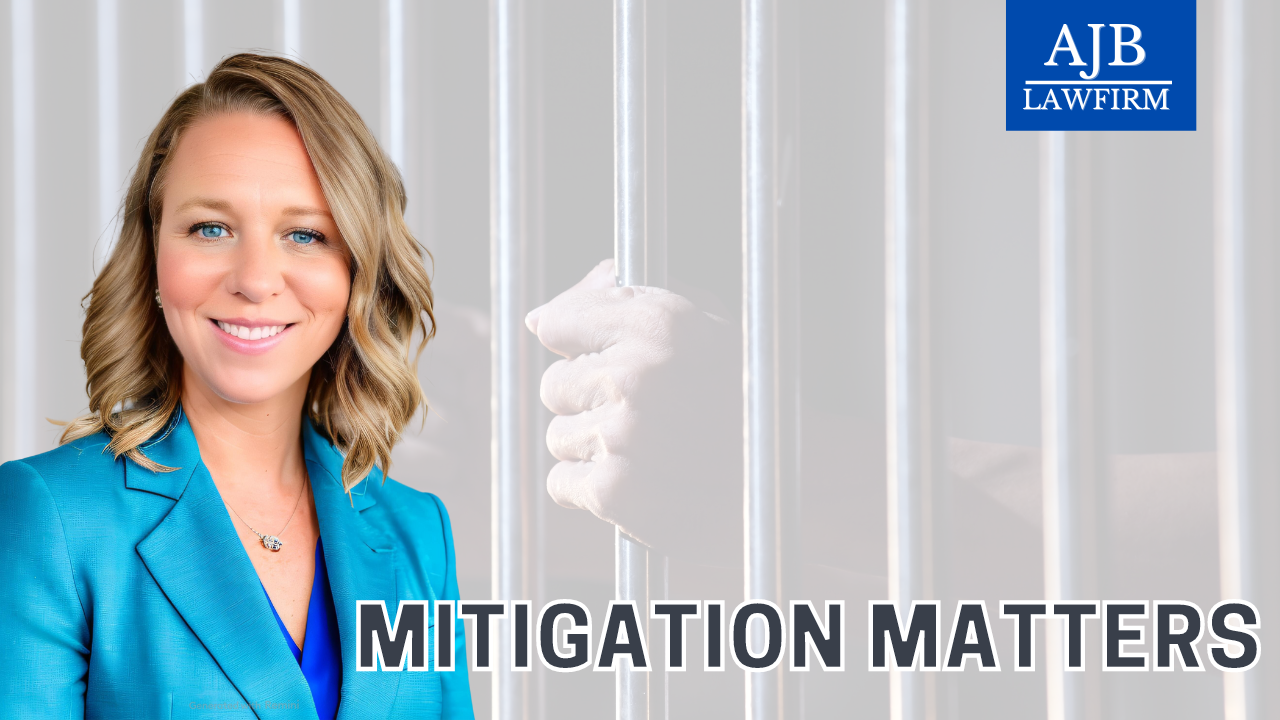Why Mitigation Matters
Building a Strong Sentencing Story
In the bustling streets of Tucson, Arizona, when an individual finds themselves at odds with the law, their future hangs in a delicate balance. At this juncture, having an adept criminal defense attorney can be the difference between a favorable outcome and a grim future. Most people imagine attorneys battling it out in courtrooms, seeking acquittal or dismissal. And while these are noble and essential pursuits, sentencing mitigation is an underlying component of criminal defense that's often neglected yet holds paramount importance.
Contrary to popular television depictions, most criminal cases resolve in plea agreements. Thus, criminal defense attorneys must also wear the hat of sentencing lawyers in addition to being skilled negotiators and litigators. In the realm of criminal defense, understanding the nuances and importance of sentencing can be the line separating freedom from incarceration.
The Proactive Approach to Sentencing
Amanda J. Bynum of AJB Law Firm, LLC, emphasizes a profound belief: great defense lawyers prepare for sentencing the day they are retained. This approach is not an admission of guilt or an expectation of a negative outcome but rather a strategic positioning. Even when the ultimate goal is acquittal or dismissal, preparing for potential sentencing becomes integral to the defense strategy.
Just as we prepare for the worst storms,
even if we hope they bypass us,
defense attorneys must be ready for every eventuality.
Understanding Mitigation
So, what is mitigation? In essence, mitigation is evidence presented to the court that might not exonerate the defendant but could lead to a reduced sentence or lesser penalty. It paints a holistic picture of the defendant, portraying them as more than the sum of their alleged crimes.
Imagine a vast canvas, with the alleged crime being only one corner. Mitigation fills in the rest, detailing the person's life, hardships, contributions, relationships, and potential for rehabilitation. A judge, during sentencing, has the discretion to look beyond the facts of the case. They can delve into the individual’s life story, considering circumstances that a jury might not. And this is where a skilled attorney makes all the difference.
While trial preparation focuses on the specifics of the crime in question, sentencing preparation is about the individual. And this is an area many attorneys, unfortunately, overlook.
The Role of the Client and Their Support System
Clients and their families are not just passive observers in the mitigation process but active participants. They hold the keys to information that can illuminate the defendant in a broader light.
Family testimonials, records of past achievements, evidence of community involvement, medical histories, and much more can all play a role in this process. A defense attorney will also investigate the potential reasons behind the alleged crime. Was it an anomaly? Was it driven by circumstances like economic hardships, addiction, or mental health issues? Unraveling these threads can help position the defendant in a more sympathetic light.
Amanda J. Bynum, in her practice at AJB Law Firm, LLC, actively collaborates with clients and their support systems. She understands the importance of tapping into this wealth of information, ensuring the court sees the person, not just the act.
Mitigation: An Asset during Negotiations
While the role of mitigation during sentencing is evident, its value isn't limited to the courtroom. When defense attorneys approach plea negotiations, the information gathered for mitigation can be leveraged. Demonstrating to the prosecution that the defendant has compelling circumstances might shift the negotiation dynamics.
For example, evidence that the defendant has taken steps towards rehabilitation or testimonials about their positive impact on the community can be presented. It's a means to humanize the defendant, to show that they have the potential for reform and that incarceration might not always be the best answer.
Therefore, the timely gathering of mitigating evidence becomes crucial. The earlier an attorney can present this to the prosecution, the better the chances of influencing the direction of the plea deal.
In the world of criminal defense, while the battles in the courtroom get most of the limelight, the silent, meticulous work behind the scenes often holds as much, if not more, significance. Sentencing mitigation is one such aspect. It's about humanizing the defendant, ensuring they aren't reduced to mere statistics or case numbers.
Amanda J. Bynum and her AJB Law Firm, LLC team champion this holistic approach to defense. Every client has a story that deserves to be told, and every case, regardless of its trajectory, deserves preparation from all angles. Because in the end, it's not just about winning battles; it's about safeguarding futures.
